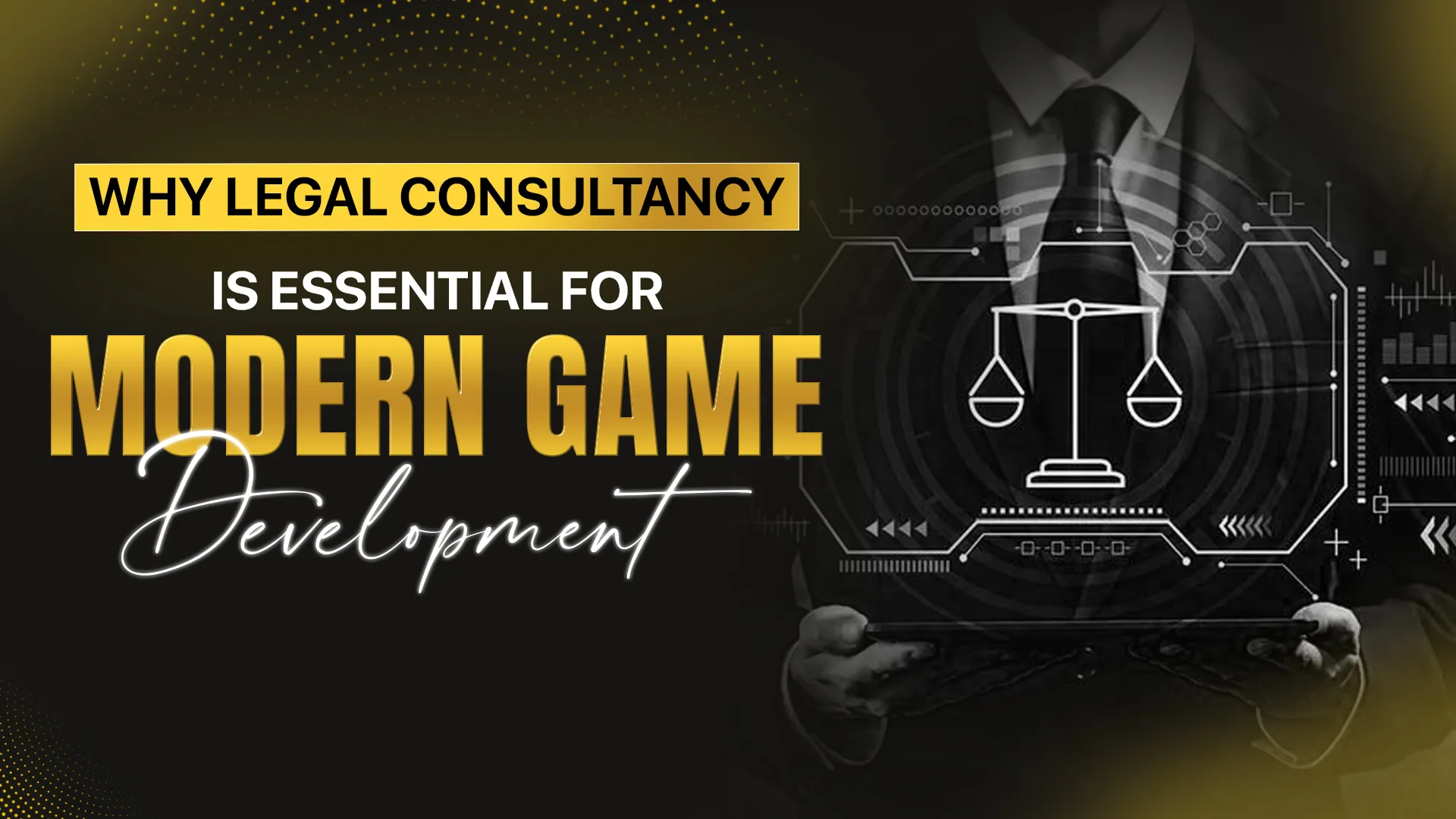The industry of gaming has grown into a multi-billion dollar industry, with developers launching games that are innovative across a variety of platforms. However, in addition to technology and creativity, legal advice plays a vital role in the process of developing games. From licensing agreements to compliance and intellectual property protection, understanding the legal landscape is crucial for avoiding costly legal battles and guaranteeing long-term success.
In this article, we’ll look at the reasons why legal advice is essential for game developers of today and the most important legal aspects involved, and how professional legal guidance can protect your game and your brand.
1. Protecting Intellectual Property (IP) Rights
Game development requires a variety of creative elements, such as artwork, code, characters music, storylines, and soundtracks. If there is no adequate IP protection, unauthorized copying, use or infringement could jeopardize rights of the developer.
The legal consultancy helps game developers secure:
- Copyrights Protect exclusive game content such as images, scripts, as well as music.
- Trademarks: Protect logos, game titles as well as branding from exploitation.
- Patents: Covers exclusive game techniques or mechanics.
- Trade Secrets Protect proprietary algorithms as well as confidential information.
By ensuring strong IP security, legal experts can prevent disputes and help developers to earn money efficiently.
2. Ensuring Compliance with Global Regulations
Game developers must adhere to the laws of gaming in both international and regional jurisdictions to prevent legal issues.
The most important regulations are:
- GDPR (General Data Protection Regulation) regulates the privacy of data for European users.
- COPPA (Children’s Online Privacy Protection Act) protects children’s information when playing online games.
- DMCA (Digital Millennium Copyright Act) – Prevents copyright infringement in digital content.
Legal experts assist game developers navigate these laws, ensuring that games comply with privacy, data protection and content rules.
3. Drafting and Reviewing Licensing Agreements
Many game developers make use of third-party assets like game engines, music, or graphics. Legal advice is crucial to:
- Make sure that you have the correct licensing agreements in place.
- Avoid the unauthorized use of content from third-party sources.
- Be aware of the implications of open-source and. exclusive software licenses.
Legal experts also create contracts to ensure that developers are protected when they license their own games to distributors, publishers or streaming platforms.
4. Addressing Monetization and In-Game Transactions
With the increasing popularity of microtransactions, loot boxes, as well as gaming using NFT models for monetization, they require careful legal review. Legal advice assures:
- Conformity with financial regulations for in-game purchases.
- Fair User Agreements for subscriptions and virtual goods.
- The avoidance of gambling laws is a priority in areas where loot boxes are not allowed.
By ensuring that monetization is legal developers can maximize their revenue while also ensuring openness with players.
5. Mitigating Risks in Multiplayer and Online Gaming
Games that are online and multiplayer are based on user-generated content, interactions, and competitions. These can result in legal issues like:
- Cyberbullying and harassment policy.
- Guidelines for content moderation and community guidelines.
- Conditions of Service and User Agreements.
Legal consultants assist in drafting solid policies that protect developers and players from legal liability.
6. Preventing Contract Disputes and Litigation
Game development typically involves collaboration between publishers, developers, platforms, and investors. A well-structured contract can avoid disputes relating to:
- Royalties and Revenue Sharing Agreements.
- Exclusive deals and game publishing.
- Employment and contractor contracts.
Legal advice ensures that contracts are clear, legally binding, and in line with business objectives thereby reducing the chance of expensive lawsuits.
7. The Role of Legal Consultancy in Esports and Streaming
The growth of games streaming and esports introduces new legal issues, including:
- Sponsorship agreements and contracts for players.
- Rights to broadcast and streaming policy.
- Rights to intellectual property on user-generated content.
Game developers working with streamers, influencers, and esports teams should have legally solid contracts to prevent disputes regarding revenue sharing and ownership of content.
Conclusion: Legal Support Is a Game-Changer for Developers
In today’s highly competitive gaming industry, Legal consulting is no longer only an option, it’s a requirement. From the protection of intellectual property to regulatory compliance to the management of contracts and strategies for monetization, lawyers aid developers to protect their projects and ensure their projects’ success.
By utilizing professional legal advice, game designers can concentrate on creating unique experiences without worrying about legal hurdles. If you’re an independent producer or major studio getting legal assistance ensures that your game is protected and profitable. It also ensures that you are legal in the global gaming market.
FAQ’s
Why do game developers need legal consultancy?
Legal consulting helps protect intellectual property and ensure compliance, write contracts, and oversee models for monetization, thereby reducing the risk of legal liability.
How can legal advisors help in monetizing games?
They are responsible for ensuring compliance with the financial laws, stop gambling-related issues, and make fair agreements for purchases in games such as loot boxes, in-game purchases, and NFTs.
What protections under the law are necessary for developers of indie games?
Indie developers need to obtain trademarks, copyrights appropriate licensing, and well-drafted contracts to safeguard their game assets as well as their business interests.
What are the main legal risks of multiplayer gaming?
The risks include data privacy violations concerns about harassment by users and content moderation issues and disputes over contracts.
What legal experts can help with streaming and e-sports?
They assist with sponsorship agreements, player contracts broadcasting rights, as well as revenue-sharing agreements to safeguard both players and developers.

